Malawi relies heavily on tobacco as the major foreign exchange earner in the country. However, with the raging international anti-smoking laws championed by the United Nations, tobacco demand has declined over the years. The decline brought the need to look for an alternative cash crop with vast economic potential.
Hemp has been an illegal crop in Malawi over the past years. However, with the decline of tobacco’s demand and the economic potential of hemp, Malawi’s government currently passed a law to legalize medicinal and industrial hemp. Together with other countries, Malawi allows hemp cultivation with up to 1.0% THC, which is above the 0.2% allowed in cannabis applications by EU standards. The government believes that investing in the cultivation of hemp will help to boost the country’s economy.
Other countries that have legalised the crop in Africa are Rwanda, Lesotho, South Africa, Zimbabwe, Ghana, Uganda, and Zambia.
The UN Commission on Narcotic Drugs (CND) voted in December 2020 to remove marijuana from Schedule IV of the 1961 Single Convention on Narcotic Drugs where it was listed as one of the most dangerous drugs. The decision is expected to highlight the medicinal and therapeutic potential of marijuana as well as drive scientific research into marijuana.
When Was the Law Legalizing Industrial Hemp Passed?
The Malawi parliament approved the Cannabis Regulation Bill in February 2020, legalizing the cultivation, processing and marketing of cannabis for medicinal and industrial use.
The Cannabis Laws for Business Use in Malawi
Following the passing of the Cannabis Regulation Bill, the Cannabis Regulatory Authority (CRA) was established. CRA will be responsible for licensing and regulating medicinal and industrial hemp programs. The following are the main points in the law.
- The Cannabis Regulatory Authority (CRA) will be responsible for issuing licenses for the cultivation, processing, distribution, and export of medicinal and industrial hemp products.
- Hemp cultivation must be done under strict rules, including preserving the natural environment, exemption of children workers, and following strict measures on the use of fertilizers and pesticides.
- The Cannabis Regulatory Authority will also be responsible for issuing research permits for conducting scientific research programs in the country.
- All qualified patients in the medicinal cannabis program will be issued Registry Identification Cards.
- The distribution of cannabis to patients must take place in the presence of Malawi’s inspectors and police officers.
- The CRA will appoint inspectors to check and ensure compliance with cannabis regulations.
All license holders must meet all the requirements concerning the growing, processing, selling, distribution, storage, and exportation of cannabis.
The government must approve operations that include growing and supplying hemp, failure to which attracts heavy financial penalties and a jail term of not less than 25 years.
The Malawi Hemp Association (MHA) is a non-profit organization created to encourage trade and discourse among hemp professionals. MHA is dedicated to the development of the hemp industry in Malawi. This goal will be attained by coordinating legislation, agricultural organisations, farmers, processors, manufacturers, retailers and investors.
Who Pushed for Hemp Decriminalization in Malawi?
There have been several forces behind legalizing the cultivation, processing and marketing of industrial hemp in Malawi. Joe Manduwa, former deputy minister of agriculture in the president Bakili Muluzi administration, was the first parliamentarian to champion industrial hemp’s legal cultivation in April 2000 but his efforts failed.
Joe Manduwa was followed by the Rastafarian community in 2013 when they held a peaceful demonstration to urge the government to consider legalizing the growing, supply, and possession of cannabis. The Rasta community believes that the legalization of cannabis will boost Malawi’s economy. Apart from being a major foreign exchange earner, the Rasta community wants it legalized since it is an important religious crop for meditational purposes.
Then came Boniface Kadzamira, former Ntchisi North legislator, who tabled the topic to legalize industrial hemp on May 18, 2015. However, this move was criticized by members of parliament, his friends, and family.
A year later, parliament tabled a motion urging the government to legalize industrial hemp growing in the country. The Minister of Agriculture, Irrigation and Water Development Kondwani Nankhumwa also echoed Boniface Kadzamira by presenting the Cannabis Regulation Bill in Parliament on 27th February 2020. The bill included issues regarding cannabis production, distribution, and matters concerning patients and users.
How to Apply for Cannabis License in Malawi and How Much the Licenses Cost
Companies and individuals are waiting eagerly to implement the Cannabis Regulation Act in Malawi since not all regulatory pieces are in place yet. Information concerning application requirements for licenses and how much they will cost is still unknown and is yet to be released. However, if the license costs are kept low, both locals and foreign investors will benefit from the new market.
Hemp Farming in Malawi
Malawi has ideal climatic and geographical conditions for growing hemp and is among the largest cannabis producers in Southern Africa. Malawian women have the responsibility for the production and processing of cannabis. On the other hand, Malawian men are responsible for marketing and selling it. The main hemp growing areas in Malawi are the Likwawa Hills, Ntchisi, the Nkhotakota region, Dedza, Kasungu and Ntcheu. Hemp is intercropped with other crops such as corn, cassava, and sugarcane.
Investors from foreign countries have used Malawi for their cannabis production projects. Invegrow was the first company to get a research license to grow cannabis in the country. Invegrow works with a South African company, Hemporium, to make fabrics, cosmetics, T-shirts, caps, socks, belts and other items from hemp. Green Quest Pharmaceuticals is another foreign company that expressed its interest to grow industrial hemp in Malawi.
In July 2020, Malawian agriculture investor, Ibraham Aziz, unveiled a $15,000,000 investment package for the production of industrial grade hemp in partnership with Lester International from the United Kingdom.
Conclusion
Legalizing hemp growing and production will create many employment opportunities in both the agricultural and industrial sectors, especially for young people. It is essential to know that even with the decriminalization of cannabis in the country, growing it for personal use is still illegal.
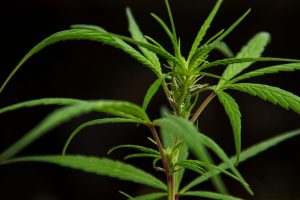
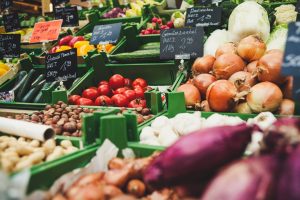
![How to Grow Hemp for Industrial and Medicinal Use [Beginner’s Guide]](https://businessideas4africa.com/wp-content/uploads/2020/11/vpfehvi5ue4-scaled-300x200.jpg)
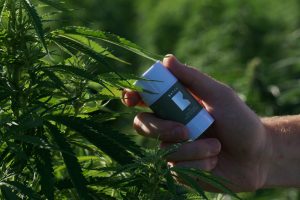
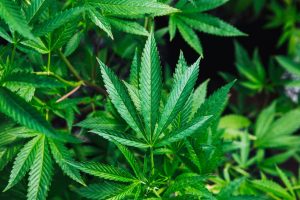
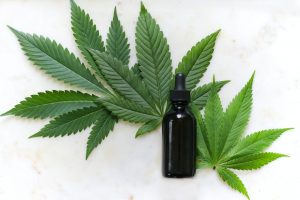
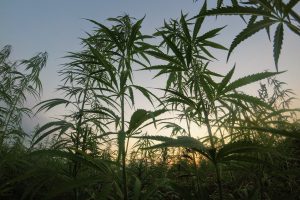

![Starting a Lucrative Hemp Farming Business in Zambia [Interview]](https://businessideas4africa.com/wp-content/uploads/2020/10/pgc9vid8o24-scaled-300x200.jpg)